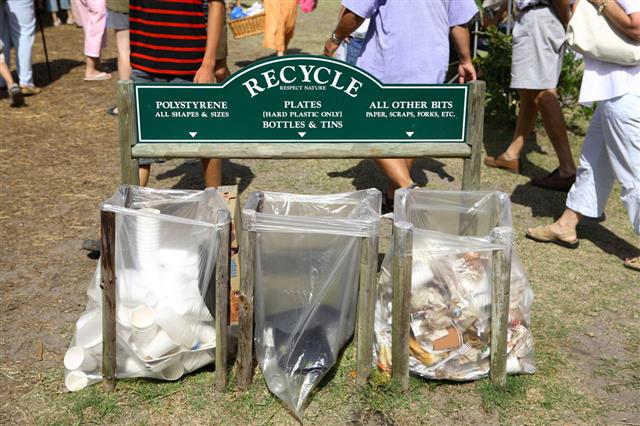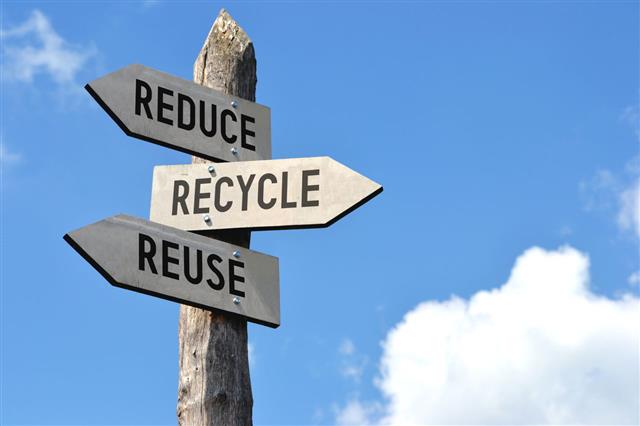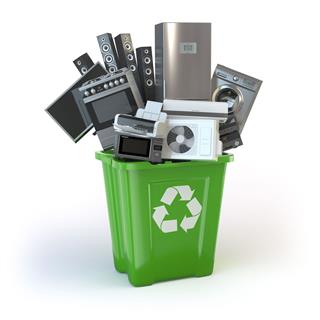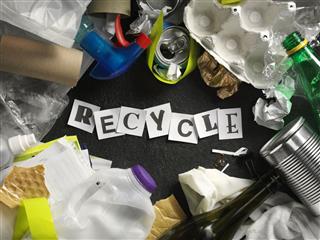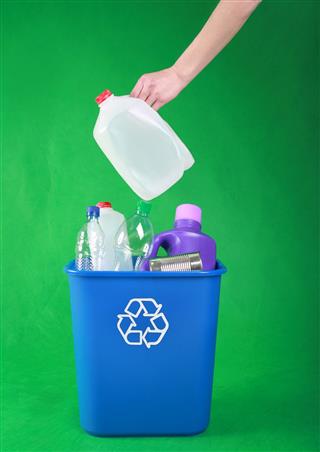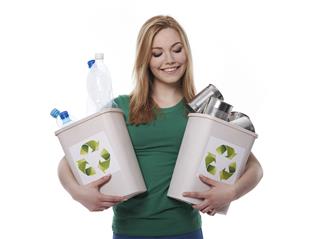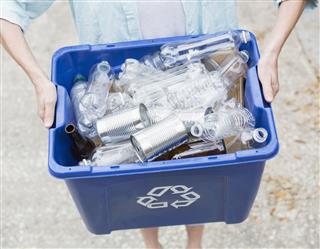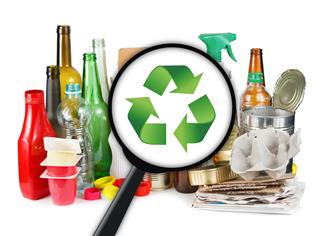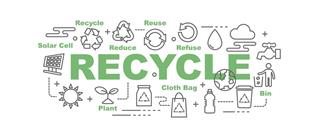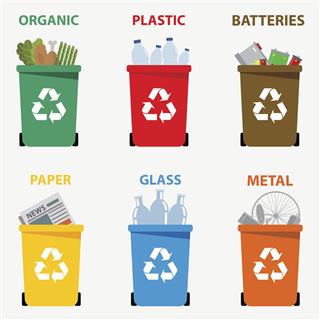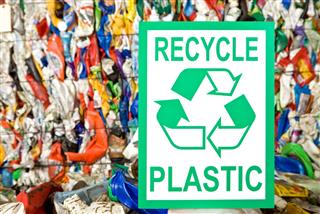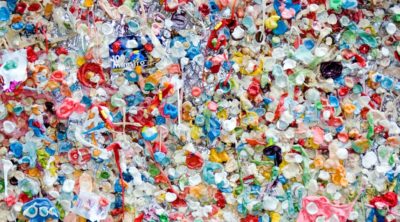
Wondering how much garbage can be recycled? Plastic, glass, metal, paper, and other materials can be recycled. To reduce the amount of trash, reuse the items once more before buying new ones, and buy products made from recycled material, to keep the recycling loop on!
Every single day tons of garbage is collected from houses, offices, schools, and other organizations. Many things that we use in our day-to-day life can be reused, like you can write on both sides of paper and thus save many trees. Instead of using disposable plastic bags, you can use cloth bags and save a lot of energy, and also contribute to reducing the amount of garbage. Recycling other materials and then reusing them is a good way to save a lot of landfill space.
The process of recycling is a continuous loop, that works when collected materials from garbage are turned into products. Then these products are bought and used again. By buying the products made from recycled materials, you will be supporting the industry that manufactures these products, and thus the loop of recycling goes on.
Plastic Recycling
Did you know that, over 46,000 pieces of plastic debris float on every square mile of the ocean?
US citizens use 4 million plastic bottle every hour! However, only 25% of these plastic bottles are used for plastic recycling.
Every year, a person gets through 90 drink cans, 70 food cans and 107 bottles, and 45 kg of plastic. Plastic waste is sorted out according to its type of plastic, and then recycled.
Around 80% of energy gets saved when plastic is created from waste plastic, rather than the raw materials.
Metal Recycling
Tin cans are 99% steel, with a thin layer of tin added to prevent the tins from corroding.
Did you know that recycling aluminum can save up to 95% of energy which is required to make aluminum from bauxite ore?
Recycling 1 ton of aluminum can save up to 27 cubic yards of landfill space.
Paper Recycling
Recycling one ton of paper saves around 17 trees, 463 gallons of oil, 6,953 gallons of water, and 3 cubic yards of landfill space.
One of the recycling fact according to the EPA, is that making paper from recycled materials can result in 74% less air pollution and 35% less water pollution, rather than making paper from wood pulp.
An average British family throws away paper, which is worth 6 trees in their household garbage can a year.
Glass Recycling
Did you know that, the energy saved by recycling just one bottle can light a hundred watt light bulb for four hours?!
One of the most interesting thing about glass is that glass can be recycled again and again. As it never wears out. Most glass bottles and jars that we use contain at least ¼ of the recycled material.
Recycling centers sort glass by color, so that the glass pieces and items can be used for recycling.
In France, most grocery stores sell drinks in glass bottles which can be returned to the store for refilling.
Other Facts on Recycling
The first municipal dump was formed in ancient Athens in 400 B.C.
Every year we dispose around 24 million tons of leaves and grass clippings, which can be used by converting to compost to conserve landfill space.
Use and throw bags are a waste of trees (paper bags) or fossil fuels (plastic bags). Not just that, they also contribute to water pollution during their production. Reusable cloth or paper bags are a better alternative to single use bags.
The recycling symbol was designed by Gary Dean Anderson in the year 1970.
Plant waste like potato, orange, banana peels, and grass cutting, leftover food, can quickly fill up the garbage can. This kind of waste can be easily used to make compost, which is a very good fertilizer for plants.
Did you know that, up to 80% of an average car is recyclable?
Taking a shower, instead of a bath can help save around 50 gallons of water!
Did you know that when recycling centers are established, they create more job opportunities; than landfill and incineration ones?
What You Can Do?
First and foremost start sorting out your garbage, and make colorful cans with sign on them. Keeps the signs big and simple. This will make sorting garbage easier.
You can use organic waste from the kitchen to create compost.
Paper waste, metal waste, and plastic waste can be given off once in a month or 15 days to recycling centers. Many times you can get money for such type of waste.
Try to conserve your resources, and use them as much as you can before you decide to throw them away in garbage.
Use rechargeable batteries instead of disposable ones and avoid using plastic bags, instead use cloth bags.
